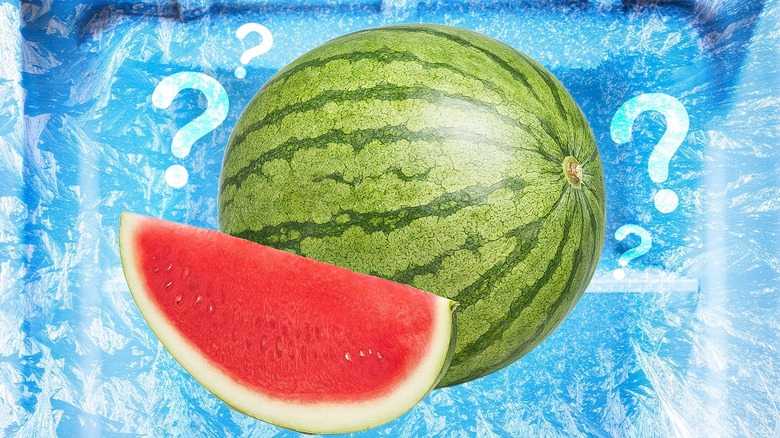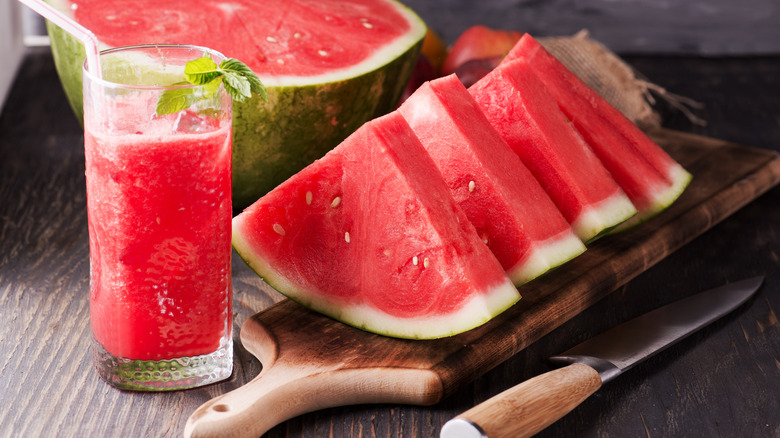Can Watermelon Be Frozen For Later? Here Are The Tropical Details
One sure sign that summer has arrived is the presence of bins overflowing with watermelons at your local grocery store. While many stores will sell them in the off-season, peak watermelon season is typically between May and September, so that's the best time to enjoy perfectly ripe, juicy watermelon. However, if you're the type who likes to stock up on seasonal fare and use the freezer to preserve it for cooler seasons when less is growing in your area, you might wonder if watermelon can be frozen. The answer is yes — although with the caveat that you'll have to be more mindful about the types of dishes the frozen watermelon is used in because freezing does change the texture.
Watermelon is incredibly refreshing during hot weather precisely because of how hydrating it is. The summer fruit is about 92% water, which has a big impact during the freezing process. With most frozen items, you likely thaw them out before using them in your dish, but doing this with frozen watermelon will yield melon chunks that are unappealingly spongy and a bit mushy.
In fact, the primary reason many suggest you shouldn't freeze watery fruits is because of that texture change. The solution is simple — since there's so much water in watermelon, it purees or blends beautifully, so it's best used in dishes like smoothies, sorbets, or gazpachos, where you get all of that summery watermelon flavor without having to worry about the texture.
Freezing tips for best results
If you've gone through the trouble of picking a perfectly ripe watermelon, it's worth the extra few minutes to freeze it properly. While tossing half of a leftover watermelon in a freezer bag and considering the task completed will still yield frozen watermelon packed with vitamin C and antioxidants, a little prep work is key for best results down the line.
Start by removing the watermelon's rind and seeds, which is much easier to do when the watermelon is fresh. It'll save you time when you want to use the fruit later, as those elements will also need to be removed prior to blending or using your watermelon in a dish, lest your delicious watermelon slushies or granitas (two dishes with subtle differences that both allow frozen watermelon to shine) be studded with chunks of bitter rind or unpalatable black flecks of blended seeds. Then, as you would for many other fruits, you'll want to initially freeze the watermelon in smaller chunks on a baking sheet — they don't have to be picture-perfect cubes, just smaller segments. When solid (which takes just a few hours), store the pieces in a larger freezer-safe bag or container so you can just grab a few whenever you need that summer flavor. They'll last in your freezer for anywhere from nine to 12 months so, provided you stock up when it's in season, you should be able to enjoy watermelon all year long.

